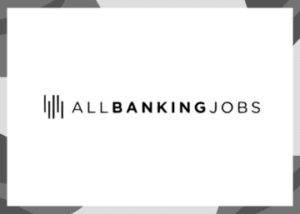As Donald Trump returns to the White House for a second term, his stance on environmental issues is likely to shape many sectors, including the banking industry. While his policies in the past have focused on less government involvement and more support for traditional energy industries, his approach to environmental regulations could have significant consequences for sustainability and green banking jobs. In this blog, we’ll break down how Trump’s environmental policies may influence the growth of green banking careers and what this means for professionals looking to make a difference in sustainable finance.
1. Less Strict Environmental Regulations
During his first term, Trump rolled back many environmental regulations, aiming to reduce the burden on businesses, particularly in the energy and manufacturing sectors. With the new administration, it’s expected that this trend could continue. For banks, this could mean fewer restrictions on financing projects that involve fossil fuels and other industries considered harmful to the environment.
Impact on Careers: Green banking professionals, who work on financing eco-friendly projects or helping businesses become more sustainable, may face challenges in an environment where fossil fuel projects get more support. However, this could push them to develop creative solutions to promote sustainability within existing frameworks, opening up new career opportunities for problem-solvers.
2. Focus on Traditional Energy Over Renewables
Trump has historically been supportive of traditional energy sectors, such as oil, gas, and coal. If his policies continue to favor these industries, it could impact the amount of investment directed toward renewable energy projects like wind and solar power.
Impact on Careers: For banking professionals in the green finance space, this may slow the growth of renewable energy investments in the short term. However, professionals who are skilled at balancing traditional and green energy investments could still find opportunities to help banks support the transition to more sustainable practices. Roles in energy financing, sustainable investing, and environmental risk management could become more specialized, requiring professionals who can navigate both traditional and sustainable energy sectors.
3. Increased Focus on Market-Based Environmental Solutions
Trump has expressed interest in using market-based solutions rather than strict regulations to address environmental challenges. This could mean more emphasis on voluntary initiatives, such as carbon credits, emissions trading, or green bonds, as a way for companies and financial institutions to meet environmental goals.
Impact on Careers: This market-driven approach could increase demand for banking professionals who specialize in green bonds, carbon trading, and sustainability-linked loans. Roles in sustainable investment analysis and environmental risk management may also become more important as banks look for innovative ways to support businesses in meeting voluntary environmental targets. Green banking experts may need to be adaptable and stay ahead of market trends to succeed in this changing landscape.
4. The Role of ESG (Environmental, Social, and Governance) in Banking
Despite Trump’s stance on reducing environmental regulations, many global investors are still demanding greater accountability in environmental, social, and governance (ESG) practices. The push for ESG investments continues to grow, and banks are increasingly integrating ESG criteria into their financing and investment decisions.
Impact on Careers: While Trump’s policies may reduce some regulatory pressures, the broader global trend toward sustainability and ethical investing remains strong. Green banking professionals, especially those involved in ESG reporting, sustainable finance, and environmental risk management, will continue to find career opportunities. Banks and financial institutions may still seek experts who can help them align with investor and consumer demand for sustainable and ethical business practices.
5. Opportunities for Innovation in Green Banking Products
Even if the regulatory environment becomes more relaxed, the demand for sustainable products in the banking sector won’t disappear. In fact, many financial institutions are exploring new green banking products, such as sustainable mortgages, green bonds, and loans for eco-friendly businesses. This trend may accelerate as more consumers and businesses seek environmentally conscious financial services.
Impact on Careers: Professionals with expertise in developing green banking products will likely continue to be in high demand. These products can range from financing for energy-efficient homes to funding for companies adopting sustainable practices. Career opportunities in product development, marketing, and investment advisory roles focusing on green finance could expand as banks look to offer solutions that meet growing environmental concerns.
6. A Shift Toward Long-Term Environmental Strategies
While Trump’s policies may favor short-term economic growth and traditional industries, banks and investors are increasingly focusing on long-term environmental sustainability. Many financial institutions understand that investing in sustainable projects is not just about complying with regulations—it’s also about long-term value creation.
Impact on Careers: As the financial world continues to recognize the long-term benefits of sustainability, green banking professionals will be needed to create and manage strategies that balance economic growth with environmental responsibility. Career paths in long-term sustainability planning, impact investing, and environmental risk management will likely continue to grow, especially in institutions focused on aligning their portfolios with sustainable, long-term goals.
Conclusion
Donald Trump’s environmental policies may present challenges for sustainability-focused banking careers, particularly in the short term. With fewer regulations and a greater emphasis on traditional energy, green banking professionals may need to be flexible and innovative in finding new ways to support sustainability within the financial sector. However, the ongoing global demand for sustainable investment and ethical business practices offers continued career opportunities for those working in green finance, ESG, and sustainable banking.
While navigating these changes may require adjustments, there will still be a strong need for professionals who can drive the future of sustainable finance. By staying informed, adaptable, and ready to embrace new green banking solutions, professionals can position themselves for success in a constantly evolving sector.






